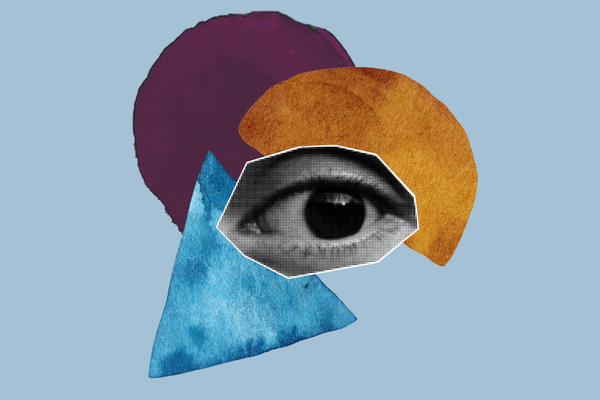British Film Institute x PFR: empowering accessibility at BFI Southbank


Back in June 2024, we were thrilled to partner with the British Film Institute – more specifically BFI Southbank – to conduct an accessibility-focused research project. The aim was to enhance the experience for disabled users when attending cultural events and accessing information on cinema and event websites.
BFI Southbank approached us with a unique and meaningful goal, to recruit 20 participants with specific accessibility needs for a comprehensive study. This research was designed to understand how people with cognitive disabilities and hearing impairments engage with cultural events and navigate cinema websites. To truly reflect the diversity of the audience, we ensured the participants came from a range of sexual orientations and ethnic backgrounds.
The mission & objectives
The client tasked PFR to recruit 20 people for this project: 10 with cognitive access needs and 10 with hearing impairments, offering an individual £70 incentive for 60 minutes of their time. The research team at BFI wanted to talk to participants who travelled to central London to attend at least one cultural event or cinema trip per year.
As part of this study, the participants were asked to take part in semi-structured interviews and contextual research, where the users were observed while navigating cinema websites. The client wanted to explored how the individuals planned their visits, browsed event websites, and searched for accessible events.
The plan included giving participants the freedom to use their preferred devices – whether smartphones, tablets, or laptops – and ensuring they felt comfortable and supported throughout the sessions. The participants were also offered a mix of remote and in-person sessions, depending on their preferences. Home visits were available for those in the London area, in-person sessions were held at the BFI London office, and some people took part via Microsoft Teams and shared their screen so the researchers could see their activity.
"Our research objectives were designed to dive deep into the experiences of disabled users," the client said. These included:
- Understanding user needs and habits
What are the main interests of disabled users when exploring cinema and cultural venues? How do they access information on these websites? - Evaluating browsing and searching behaviours
How do disabled users find accessible events on cinema and cultural websites like BFI Southbank? What formats or technologies do they rely on? - Exploring perceptions of BFI Southbank
What do disabled users think about BFI as an organisation? How can their offerings be improved to enhance inclusivity?
The research sessions lasted 75 minutes, with participants able to take a total of 15 minutes of break time as and when needed.
The PFR approach
The recruitment team at PFR followed our tried and tested two-stage screening process. First, our community marketing team sent out an initial invite to a targeted audience on our database. Targeting the right group of participants was made easy by our extensive sign-up process, which gathers all the essential demographic data about our community members, as well as information about any impairments and access needs, as well as use of assistive technology.
This initial invite included a short online screening done via our accessible website, which allowed us to easily access the suitability of the participants interested in taking part. Once we had a healthy pool of users, we began the second stage of our process: telephone screening.
We used this step to ensure the information provided during the online questionnaire was accurate and to further probe into what we already know about the potential participants, gathering as much detail as possible and double checking their availability to attend the research. Our screening confirmed that the participants were regular attendees of cultural events, particularly cinemas, and that they had insight into how their disabilities impacted their experiences at these venues or when booking tickets.
Thanks to our robust recruitment process, we managed to fully recruit for the project, sourcing 10 participants with hearing impairments and 10 participants with a variety of cognitive impairments.
Additionally, our team took on other critical tasks to ensure the recruitment and participation process was as seamless as possible for both the participants and our client. This included:
- Handling the consent forms for all participants and ensuring the process remained GDPR-compliant and the participants' personal data was kept secure at all times;
- Ensuring that participants with hearing impairments could choose their preferred communication method, whether it be BSL, text, lip reading, or finger spelling;
- Ability to provide a BSL interpreter for hearing-impaired participants during the sessions.
Impact and results
By focusing on the real-world experiences of individuals with cognitive and hearing impairments during the recruitment process, we helped BFI Southbank gain a deeper understanding of how to improve their services, both online and in-person.
The insights gathered from this research will enable the British Film Institute to make informed changes to their website and event offerings, ensuring a more accessible and enjoyable experience for all attendees. Here is some of the feedback we collected.
Insights from participants with cognitive impairments:
Through our screening process, we gained powerful insights into the challenges faced by participants with cognitive disabilities when attending cultural events.
- ADHD: one participant reported frequently missing details when buying tickets and struggling to concentrate during long films due to brain fog.
- Dyspraxia & autism: another participant highlighted issues with memory, sensory sensitivity, and social interaction, emphasising the need for detailed planning and familiar environments when attending events.
- Dyslexia: a participant mentioned delayed reactions and the need for information to be broken down for easier understanding, yet still managed to enjoy cultural activities with family support.
These personal stories highlighted the importance of making cultural experiences more accessible and inclusive for people with varying cognitive needs.
Insights from participants with hearing impairments:
The hearing-impaired participants also shared their experiences, particularly around attending cinema screenings. Some expressed a preference for subtitle and caption viewings, while others said that attending the cinema was less enjoyable due to a lack of awareness about accessible screenings.
One participant shared that while they enjoyed the cinema experience, profound hearing loss made it difficult to fully engage with the film without subtitles or captions. This feedback was invaluable for BFI, as it reinforced the need for greater visibility and accessibility in cinema offerings for hearing-impaired audiences.
Client feedback:
At the end of the day, we had a very satisfied group of participants in research, who not only got to share their feedback towards improvements that will benefit their peers, but we also managed to get really positive feedback from the client.
"PFR provided a very professional and friendly service. Both the service provided and the participants sourced were high-quality and the value for money was excellent."
At People for Research, we believe that inclusivity is key to creating better experiences for everyone. Our partnership with BFI Southbank is a testament to how fully inclusive user recruitment and research can drive positive change, creating a more accessible world for individuals with disabilities.
Are you interested in learning more about how accessibility research can benefit your organisation? Contact us today to discover how we can help you meet the needs of diverse audiences and improve user experiences across the board.



